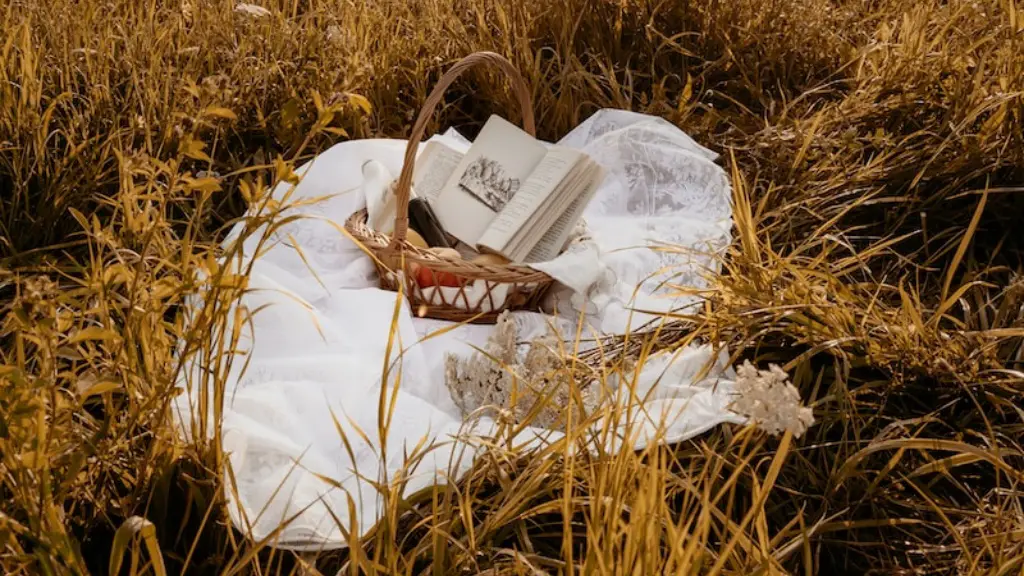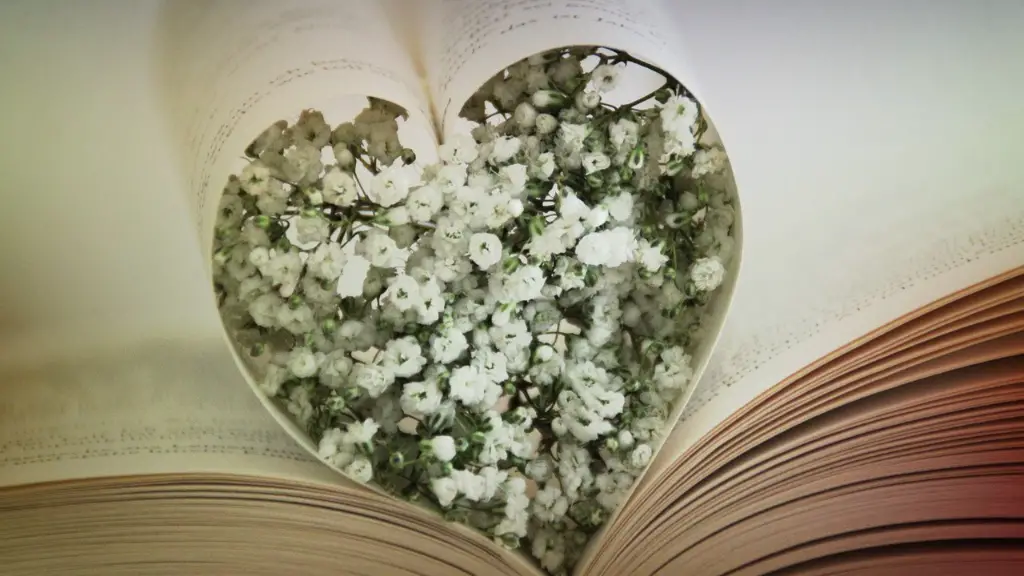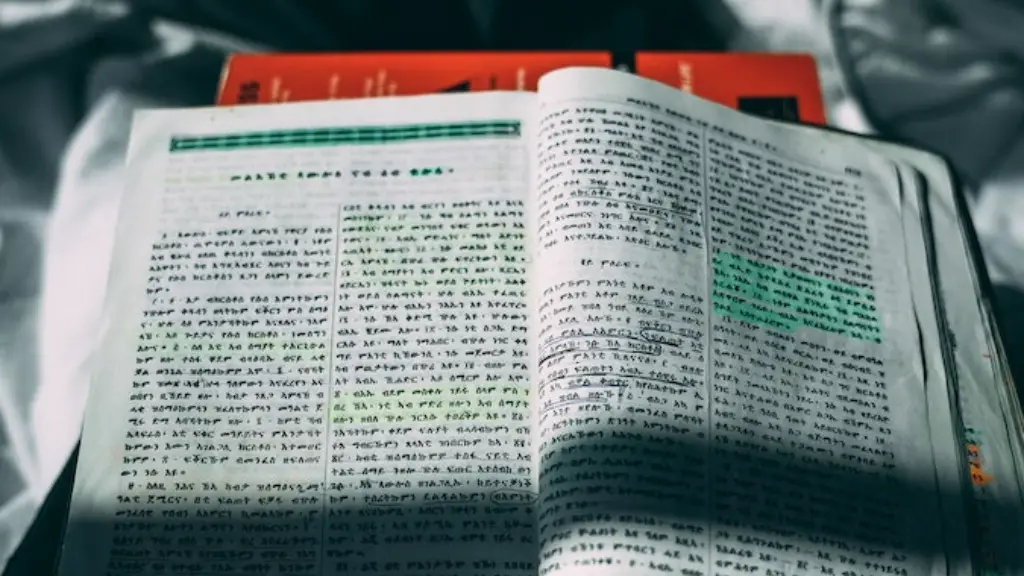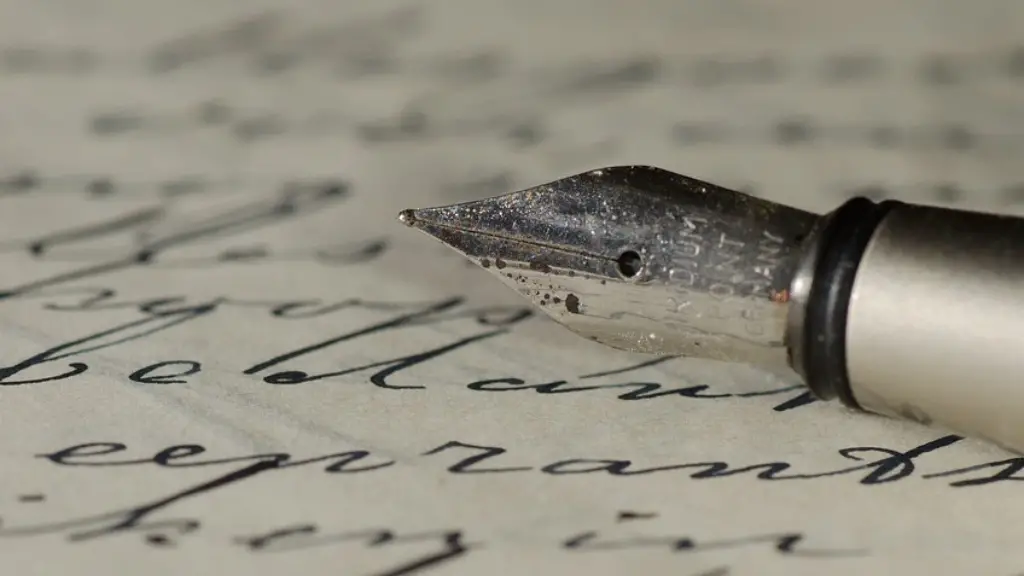Steps to Write Rhymed Poetry
Are you looking to learn how to write rhymes? If so, you can find the process quite daunting. After all, it requires good command of the language, understanding of poetic elements, a powerful creative imagination, and most of all, a strong commitment to practice. However, if you follow the steps outlined below, writing rhymed poetry might be easier than you think.
First, define your intent when writing. Ask yourself if you want to tell a story, express emotions, philosophize, or something else. Whatever style you choose, creating original and engaging content is the key to writing a good poem.
Second, choose a poetic structure. The two most popular rhymes are the sonnet and the haiku. Both formats have their own rules and conventions, so it’s important to understand their features before deciding on the one that works best for your poem.
Third, practice your vocabulary. To write rhymes, you must first use a variety of words that pleasantly follow the rhyme scheme or pattern you chosen. For example, if your poem follows an A – B – C structure in which each line begins with the same letter, you may opt to use words like “artful”, “beauty”, and “collection”.
Fourth, create your ending. Although some poets may prefer to leave their poems open-ended, having a resolution―or the poetic equivalent of a climax― allows the reader to connect emotionally to the poem.
Last but not least, proofread and revise your work. This part should never be rushed, as it helps tighten your message and meaning as well as smooth out the poem’s language before you publish or share it.
Other Tips to Writing Rhymed Poetry
Beyond the basic steps, the following tips can help you write better rhymes and bring your poetry to the next level.
Be creative with terms and symbols. Rhyming doesn’t always have to follow a predictable pattern and can include puns, homonyms, synonyms, and alliterations.
Interweave your ideas. To make your rhymes more impactful, try connecting distinct topics and forming inventive symbols to tie them together.
Incorporate effective imagery. You can paint vivid, eye-catching pictures with your words to better engage and entertain readers.
Go beyond the superficial. Since rhymes can easily be divisive and oversimplified, challenge yourself to make your words meaningful and communicate a wider message.
Benefits of Writing Rhymed Poetry
Writing rhymes is not only fun, it can also help improve your writing in its entirety. Through metaphors and explorations of language, editing and revising your work, and creating content that’s both profound and entertaining, writing rhymes can have a positive impact on your creative expression.
It allows you to develop a greater appreciation for language and is energizing for the soul, especially if done with the right attitude. Plus, it gives you an opportunity to express your ideas without necessarily needing the input of others.
Moreover, it can be a great stress-reliever and provide small moments of pleasure in life. It’s an activity that can connect various people from different cultures, socioeconomic backgrounds, and generations, as well as motivate you to continue learning and growing.
Publicizing Your Rhymes
Once you’ve polished your poem, the next step is publishing it. These days, there are quite a few avenues to do so.
Create your own blog or website and begin displaying your work there. Consider sharing it on established platforms such as Twitter, Twitch, and Tiktok as well as via traditional publishing outlets.
You can also join online forums and writing groups, emphasizing the idea of supportive constructive criticism. During these sessions, you can offer feedback to others and gain feedback about your own rhymes and the value of your content.
Originality When Writing Rhymed Poetry
Humans have written poetry for many centuries, and in that time, the same conventions have been used. Writers have pushed the bounderies of creative expression and several have pioneer new styles and sounds, so it’s of utmost importance to make sure that, whatever form or structure you choose, your rhymes are original and unique.
Although returning to classic poetic forms can help you master the basics, you should rely on your imagination, use a individual voice, and fine-tune your choice of words. That is, if you want to create genuine rhymes that are truly your own.
What is the Best Way to Develop Your Rhyme Writing Skills?
The perfect way to develop your rhyme-writing skills is to constantly write and read. The more you write, the better you become at creating compelling topics, playing around with language, and incorporating figurative elements. By reading other rhymes and deducing what makes them special and relevant, you can also learn how to achieve the same thing with your own rhymes.
Plus, paying attention to other cultures, countries, and generations can help you ground your rhymes with a wider scope of perspective. Exposing yourself to different literary movements, science, and everyday life can give you an unlimited number of potential topics to address in your rhymes.
How to Overcome ‘Writer’s Block’?
When it comes to writing rhymes, a common feeling of anxiety, also known as a ‘blank page’ or ‘writer’s block’, can take over and make the process seem insurmountable. One of the most effective tactics against this dilemma is to work on a poem for a few minutes each day and set deadlines for yourself. This way, you can construct an outline for the poem and reshape it as needed without wasting too much energy.
In case these strategies don’t work, look beyond the immediate creative process and clear your mind by taking walks in the park, talking to people, or simply tuning in to what’s happening in your environment. Whatever you choose, stepping away from the task at hand can be a great way to come back with a fresh perspective.





